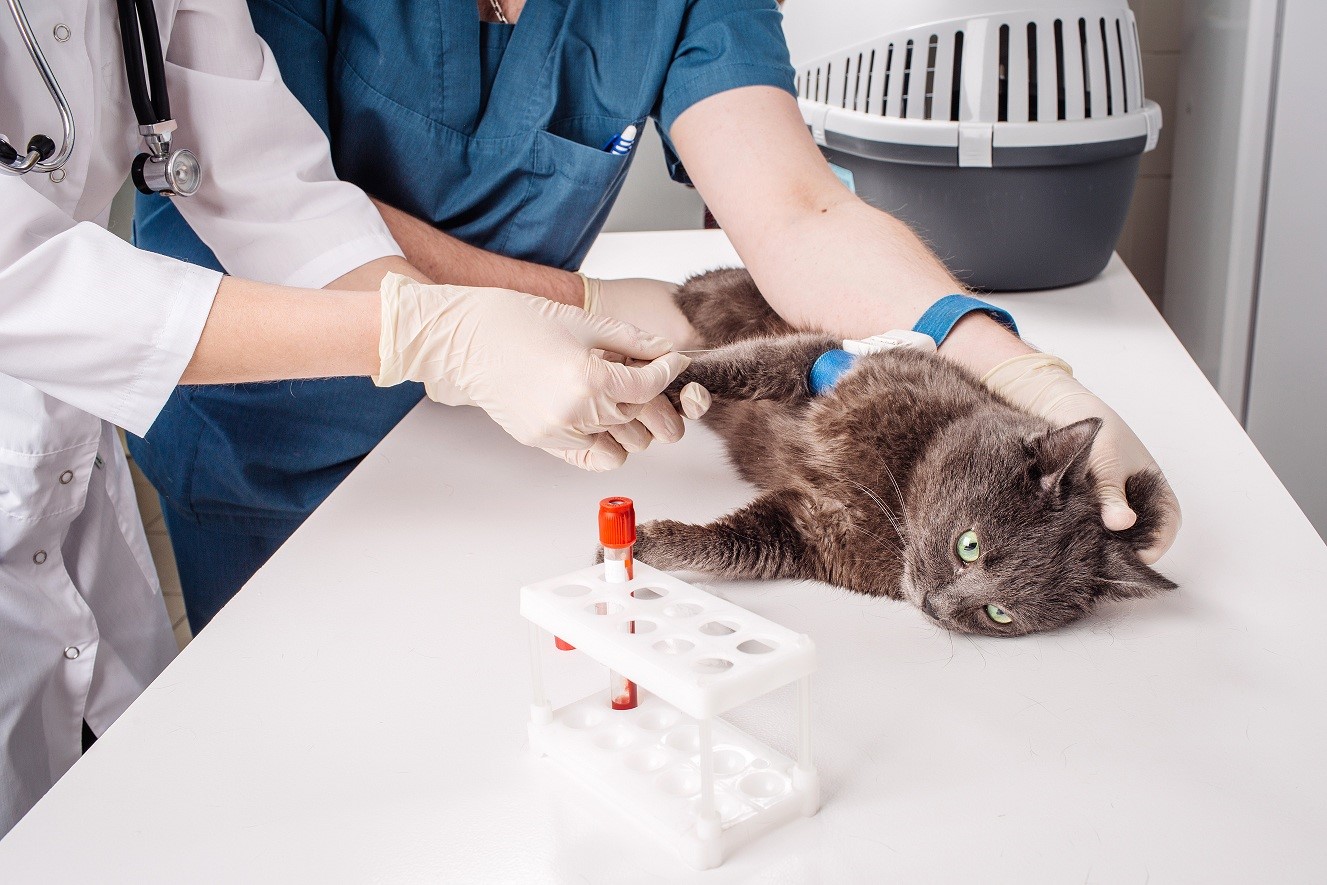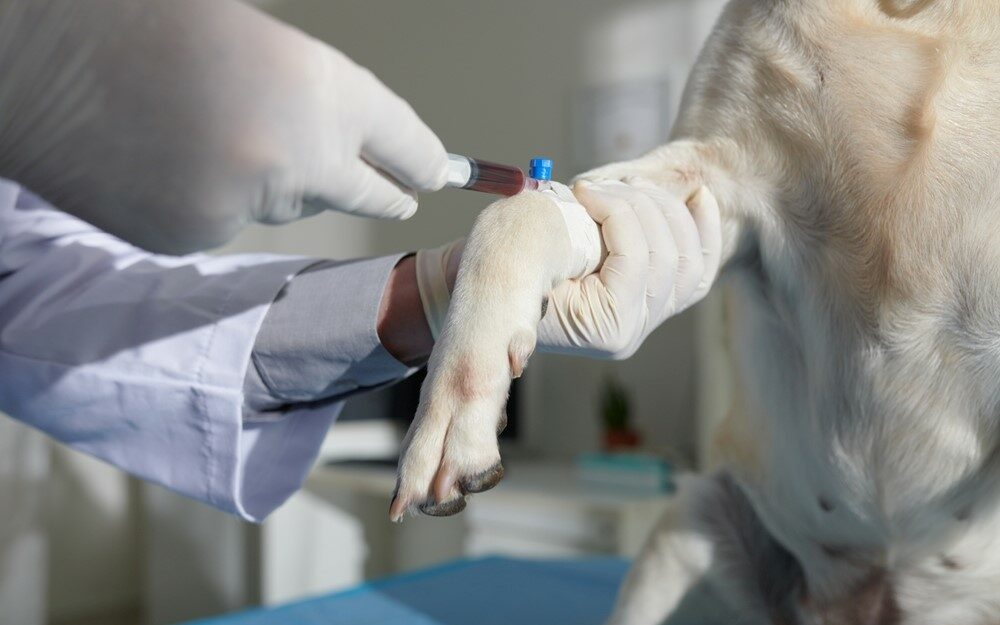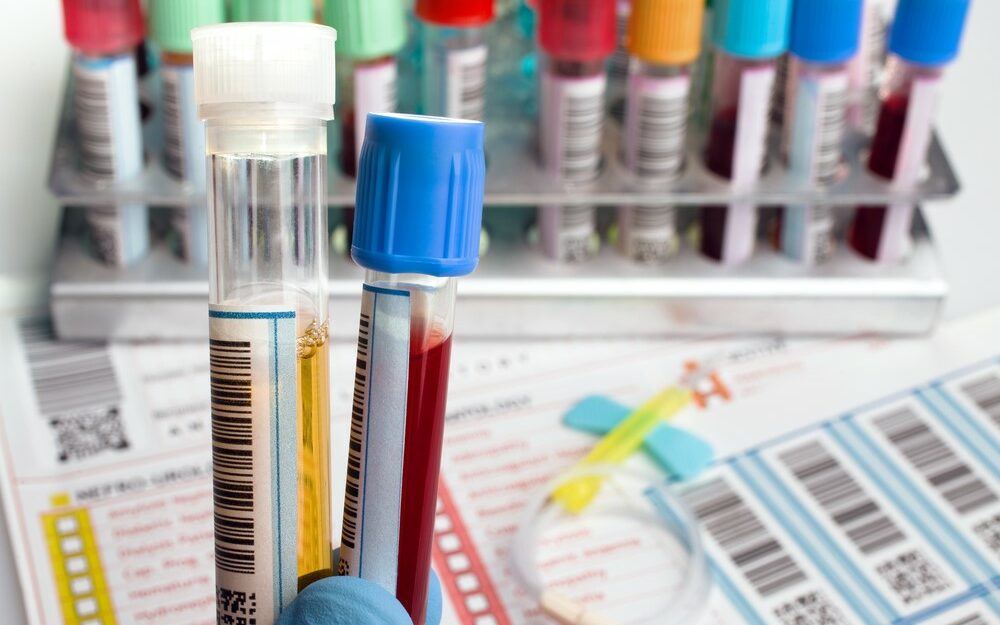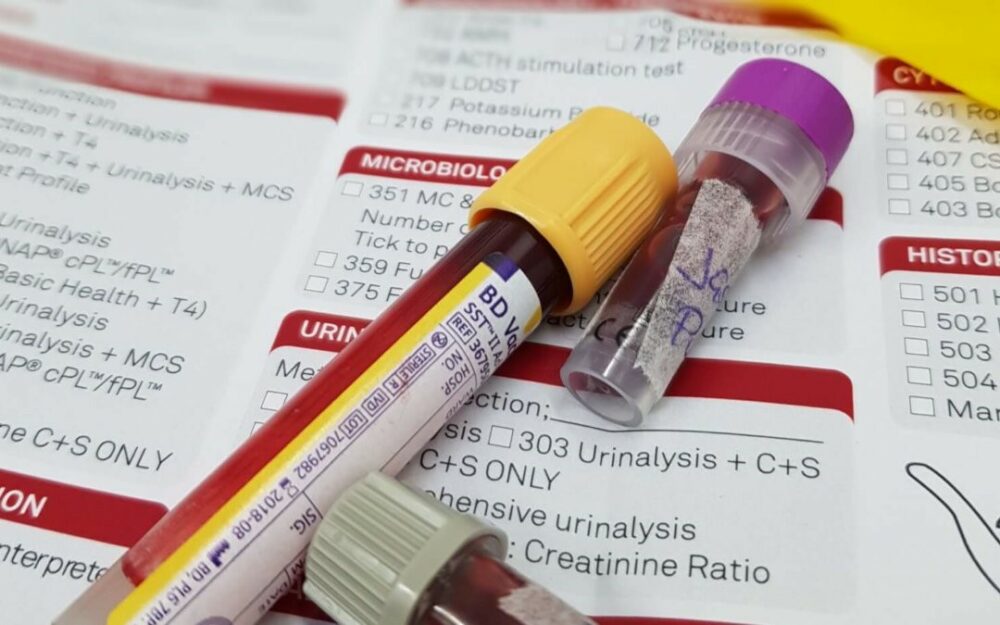Blood Test

Common types of blood tests for pets
1. Complete blood count (CBC)
- Measures the number and types of blood cells (red blood cells, white blood cells, and platelets).
- Helps diagnose infections, anemia, inflammation, and blood clotting problems.
2. Blood chemistry panel
- Evaluates the function of organs such as the liver, kidneys, and pancreas.
- Includes tests for blood glucose, proteins, electrolytes, enzymes, and more.
- Useful for diagnosing conditions like kidney disease, liver dysfunction, diabetes, and metabolic disorders.
3. Thyroid function test
Measures levels of thyroid hormones to detect hypothyroidism or hyperthyroidism, especially in dogs and cats.
4. Electrolyte panel
- Assesses levels of sodium, potassium, and calcium in the blood.
- Helps diagnose dehydration, kidney disease, and other metabolic disorders.
5. Heartworm test
- Screens for heartworm infection, which is transmitted by mosquitoes and can be life-threatening if untreated.
- Feline Leukemia Virus (FeLV) and Feline Immunodeficiency Virus (FIV) Test: Specific to cats, these blood tests check for viral infections that can weaken a cat’s immune system.
6. Parvovirus test (for dogs):
Screens for parvovirus, a highly contagious virus that affects the gastrointestinal tract of dogs.
7. Pre-anesthetic blood test:
Performed before surgery to ensure that a pet’s organs are functioning properly and that anesthesia can be safely administered.
When blood tests are needed
Routine Check-ups
Blood testing is part of a regular wellness exam, especially for older pets, to monitor health over time.Before Surgery
To ensure the pet is healthy enough for anesthesia and surgery.Diagnosis
To investigate symptoms such as weight loss, lethargy, vomiting, diarrhea, or changes in behavior.Monitoring Chronic Conditions
Pets with chronic illnesses like kidney disease, diabetes, or liver disease may require regular blood tests to monitor their condition and adjust treatments.
What to expect during a blood test

Procedure
A small sample of blood is taken from a vein, usually in the leg or neck.
Timing
Results for common blood tests are typically available within a few hours or days.
Stress on the pet
Most pets tolerate blood draws well, but some may need to be gently restrained or comforted to minimize stress.
Benefits of blood testing for pets

